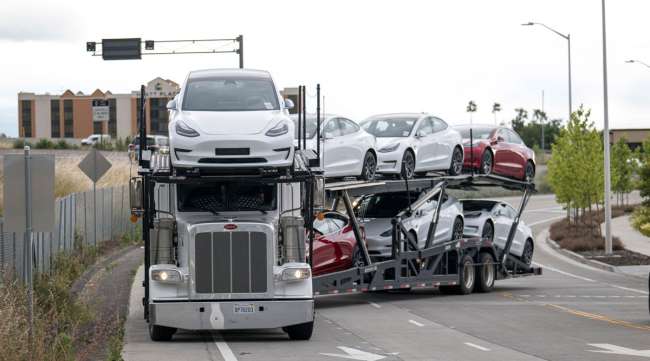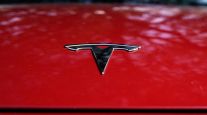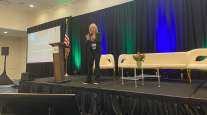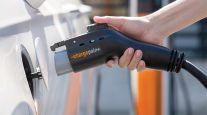San Francisco Chronicle
Alameda County Orders Tesla’s Fremont Plant to Stop Production

[Ensure you have all the info you need in these unprecedented times. Subscribe now.]
Alameda County officials sent a letter to a top Tesla safety employee May 11 ordering the company to cease manufacturing at its Fremont, Calif., plant, the strongest step local government has taken to check the electric car maker’s defiance of health orders.
The Chronicle previously reported some production lines began running over the weekend and some employees returned to the plant as early as last week. Alameda County’s local shelter-in-place orders, in place since mid-March, do not allow for manufacturing, though Tesla initially defied them, delaying the shutdown of vehicle production.
The letter from Alameda County Health Care Services Agency Director Colleen Chawla to a top Tesla executive reiterates that the company can only perform basic functions at the plant until the county and Tesla agree on a plan to reopen the factory in line with state and local rules.
“Until then, however, you must maintain no more than Minimum Basic Operations,” Chawla wrote to Laurie Shelby, vice president of environmental, health and safety at Tesla.
A statement posted on the Alameda County Sheriff’s Twitter page May 11 said the public-safety agency had also informed Tesla it could only perform basic functions. It stopped short of ordering the plant to close. Under Alameda County’s shelter-in-place orders, nonessential businesses can perform some limited functions, such as processing payroll and maintaining inventory.
“We are addressing this matter using the same phased approach we use for other businesses which have violated the order in the past, and we hope that Tesla will likewise comply without further enforcement measures,” the sheriff’s statement said.
It was not clear if Tesla had responded to the letter from Chawla. The company did not immediately respond to an emailed request for comment.
In the letter, Chawla acknowledges the county has been working with Tesla on a reopening plan over the last two weeks.
“Per our communication of earlier today, you will be submitting Tesla’s site-specific plan to me later today,” Chawla wrote in the letter. “We will review that plan once we receive it and will schedule time to review our feedback with you within 24 hours.”
Those discussions appear to be ongoing despite CEO Elon Musk’s announcement of the reopening of the plant on Twitter. It was not clear why Musk was unsatisfied with a delay in the plant’s reopening, though he generally decried any restrictions on business operations on Twitter and said he would move the company’s headquarters from Palo Alto in response.
Thank you! — Elon Musk (@elonmusk) May 12, 2020
Tesla released a “Return to Work Playbook” over the weekend that outlines increased safety measures, like handing out masks and temperature scanning, at the plant.
Tesla sued the county in federal court over the weekend, demanding they be allowed to operate the Fremont plant under state rules that they argue supersede Alameda County restrictions.
State rules around some manufacturing have been loosened but local authorities are free to enforce stricter measures to curb the virus, something Gov. Gavin Newsom repeated during a press conference May 11.
The electric-car maker sent the majority of its over 10,000 employees at the Fremont plant home in late March after initially remaining open for nearly a week after the shelter-in-place orders took effect.
Company executives have said in emails obtained by the Chronicle that workers who are concerned about contracting the disease may remain at home without being penalized but did not say for how long they would be allowed to do so or if they would be paid.
Want more news? Listen to today's daily briefing:
Distributed by Tribune Content Agency, LLC




